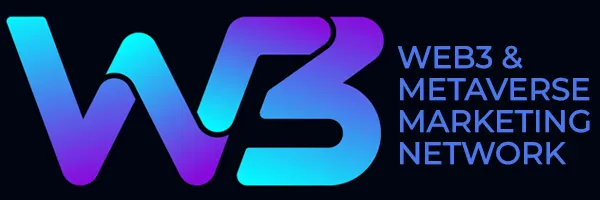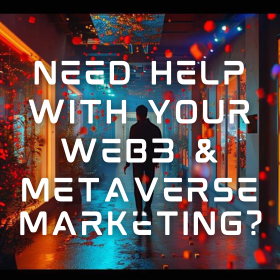Metaverse has transitioned from science fiction to a tangible reality, captivating industry giants like Facebook, Microsoft, and Google. Facebook, in a bold move, has rebranded itself as Meta, signaling a dedicated pursuit of bringing the metaverse to life. As more businesses embrace this revolutionary concept, metaverse marketing has emerged as a pivotal strategy. Let’s dive into the intricacies of marketing in the metaverse, exploring strategies, best practices, real-world examples, and potential career opportunities.
Decoding the Metaverse
As the metaverse is still in its early stages, there’s no definitive definition. Broadly, it can be perceived as an immersive virtual realm where users, represented by avatars, engage and transact online. Renowned metaverse expert Matthew Ball outlines key elements, including its infinite nature, real-time existence, virtual identities, ownership of assets, spanning physical and virtual realms, and interoperability.
The Future Impact on Marketing
According to McKinsey, the metaverse is poised to significantly impact both commercial and personal spheres. Investments in the metaverse exceeded $120 billion in 2022 and are projected to reach $5 trillion by 2030. Influential games like Fortnite, Minecraft, Illuvium, and Axie Infinity are already integrating metaverse elements, while major brands like Nike, Samsung, and Coca-Cola actively leverage the metaverse to connect with consumers. This paradigm shift indicates a trajectory where digital marketing surpasses traditional methods, and the metaverse becomes a pivotal player.
What Awaits Marketers in the Metaverse
Gartner predicts that by 2026, 25% of people will spend at least an hour daily in the metaverse for various activities. This presents a unique opportunity for marketers to immerse consumers in a 3D digital experience, seamlessly blending virtual and augmented reality. Brands can craft dedicated metaverse spaces where users explore, interact, and make purchases through their avatars, creating a novel realm for consumer engagement.
Metaverse Marketing Strategies
For marketers navigating the metaverse, here are key strategies:
- Engage with Existing Communities: While targeting Gen Z and millennials is crucial, maintaining engagement with current customers is equally vital. This ensures continuity in marketing campaigns and upholds brand trust.
- Prioritize Immersive Experiences: Metaverse marketing allows the creation of dedicated worlds for products or services. Crafting immersive experiences tailored to your brand and audience is essential, though it demands significant time and investment.
- Introduce Collectibles: Leveraging blockchain technology for NFTs, brands can offer unique digital collectibles, such as video clips, digital art, or trading cards. These exclusive items can’t be copied, enhancing their desirability.
- Blend Metaverse with Real-Life Marketing: Metaverse marketing should complement, not replace, existing strategies. Integrating real-life experiences into metaverse campaigns can yield substantial success.
- Embrace Continuous Experimentation: Given the nascent stage of the metaverse, marketers should be open to experimentation. Define goals, identify target audiences and platforms, and embrace innovation.
- Implement SEO for the Metaverse: Establishing a brand presence in the metaverse requires a thoughtful SEO strategy. Position your brand organically at the top of search results for metaverse-related experiences.
- Leverage AR Content Strategies: Explore opportunities in augmented reality (AR) to enhance your brand’s visibility. Platforms like Google AR and VR can place 3D digital objects directly in front of your audience.
- Harness Visual Search: Brands can capitalize on visual search by integrating AR on platforms like Snapchat, TikTok, and Instagram. This facilitates interactive online engagement.
- Explore Public Relations in the Metaverse: Public relations firms can use the metaverse creatively to stand out. Incorporate elements of the metaverse to create immersive brand experiences and host virtual reality events.
- Embrace Social Media Integration: Social networking is evolving with metaverse integration. Platforms like Meta Horizon Worlds offer opportunities to connect, collaborate, and host events in a virtual space.
Best Practices for Metaverse Marketing
While concrete best practices for metaverse marketing are still evolving, here are some guiding principles:
- Define Clear Goals: Establish specific goals and objectives for your brand in the metaverse.
- Identify Target Audience: Understand the demographics and preferences of your target audience within the metaverse.
- Integrate with Other Strategies: Metaverse marketing should align and complement other existing marketing strategies.
- Utilize Existing Platforms: Leverage established metaverse platforms to reach a wider audience.
- Embrace Continuous Innovation: Stay adaptable and be open to evolving your metaverse marketing strategy based on experimentation and emerging trends.
Examples of Metaverse Marketing
Several brands have embraced metaverse marketing:
- Shopify AR: Shopify incorporates AR to showcase 3D models of products, allowing customers to visualize items in the real world before purchasing.
- NIKELAND by Nike on Roblox: Nike’s immersive sports space on Roblox enables players to unlock new gear for their avatars.
- Instagram Digital Collectables: Instagram introduces digital collectibles for businesses, providing a platform to merchandise NFT collections.
- ZED RUN: ZED RUN, a blockchain-based horse-racing game, allows players to race, buy, and breed virtual horses.
- Balenciaga and Fortnite Collaboration: Balenciaga collaborates with Fortnite to launch NFT wearables that players can purchase for their in-game characters.
In summary, metaverse marketing is an evolving landscape with vast potential. By understanding the nuances and implementing innovative strategies, brands can thrive in this digital frontier, creating immersive experiences and establishing a strong presence in the metaverse.











